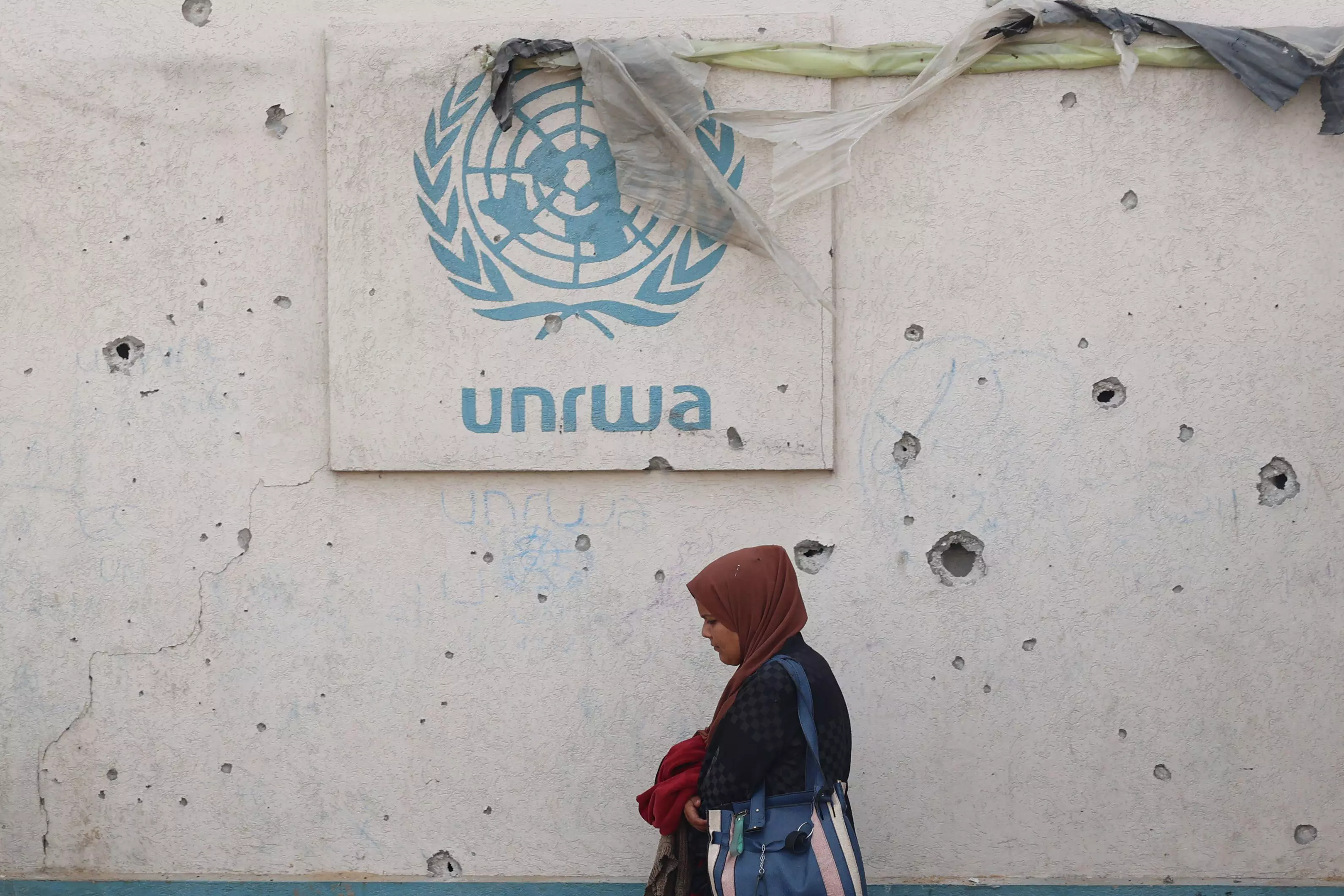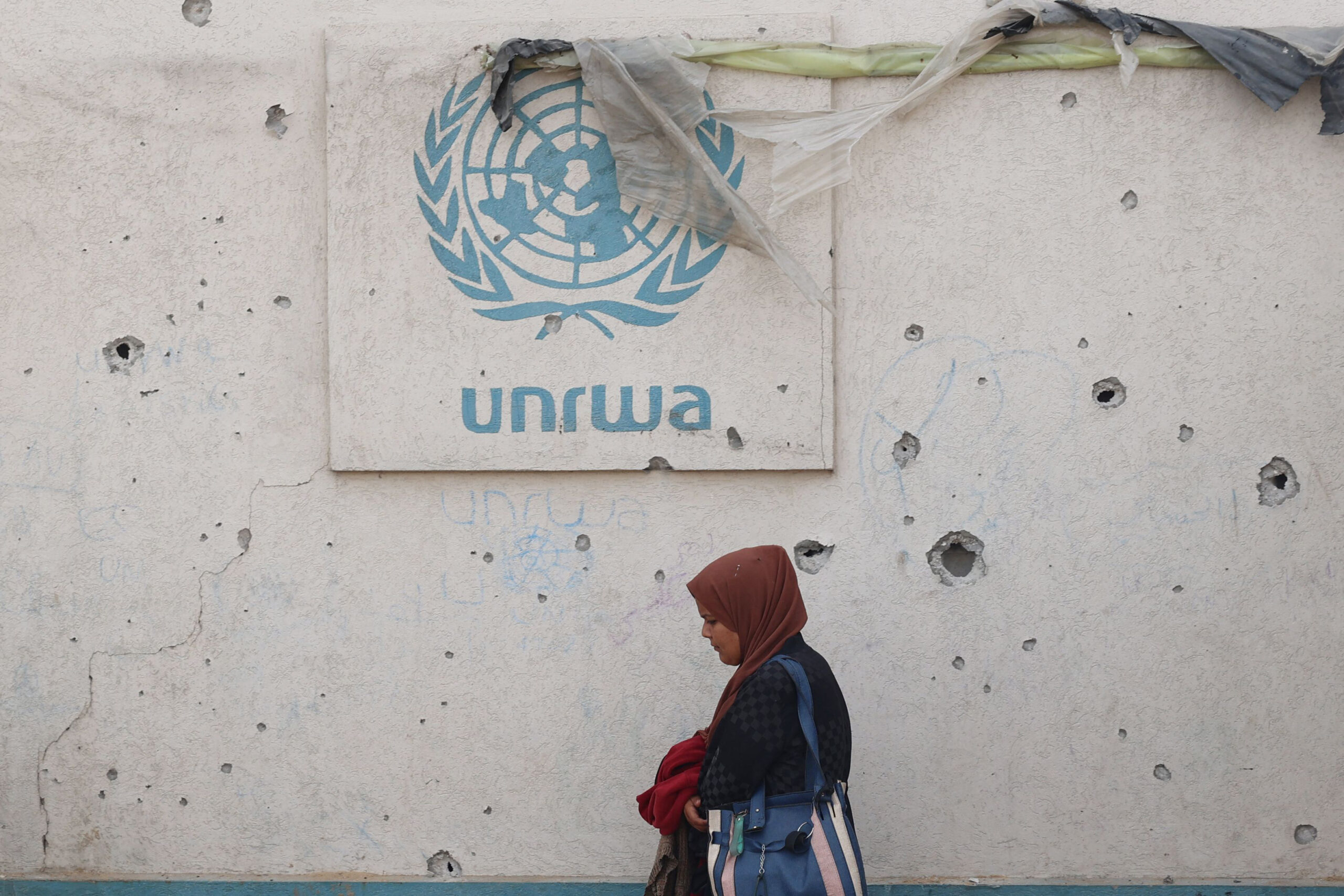
The Israeli parliament has passed the two bills to ban the United Nations agency for Palestinian refugees from operating in Israel and the Palestinian territories.
They have designated it as a terror organization and cut the ties between the agency and the Israeli government.
The legislation was passed on Monday, at a time when the humanitarian crisis is worsening in Gaza, and has a frail aid distribution process, and Israel is also under pressure to allow in the aid supplies.
The ban will take place in 90 days and eventually, the premises of UNRWA in occupied Palestinian territories like the West Bank, Gaza, and the occupied East Jerusalem, as well as Syria, Lebanon, and Jordan will be closed. The ban will disable the mandate of the agency which was set by the UN General Assembly in 1949.
United Nations Relief and Works Agency (UNRWA):
The United Nations Relief and Works Agency is the main refugee agency for Palestinian Refugees and operates all across the Middle East.
The agency was set up in 1948 to support the 700,000 displaced Palestinians after which Israel was established. The UNRWA provides health care, relief, social services, education, and shelters, and provides camp infrastructure during times of war.
The agency is primarily funded by the Voluntary contributions from UN Member states. It also receives some funding from the UN directly. It employs 30,000 Palestinians, and almost 6 million refugees, which includes 1,476,706 registered in eight refugee camps in Gaza and 800,000 registered in the West Bank.
During the ongoing conflict in Gaza, nearly all of Gaza’s population depends on UNRWA for essentials like food, water, and hygiene supplies. Over 200 UNRWA staff members have lost their lives due to Israeli attacks during the year-long conflict.
Why Ban?
On Monday, 92 Israeli MPs voted in favor of a measure to ban UNRWA’s activities in Israel, with only 10 opposing it. A second bill cut diplomatic ties with the agency.
Israel has argued that UNRWA is outdated, claiming that its ongoing support for the descendants of those initially displaced in 1948 hinders the progress toward a peace settlement.
The critics argue that Israel’s actions. particularly its reluctance to fully support the establishment of a Palestinian state and its ongoing settlement activities on land designated for a Palestinian state, are the primary obstacles to peace.
During the current conflict with Hamas, Israel has repeatedly claimed that UNRWA employs members who are affiliated with Hamas.
Israeli Prime Minister Benjamin Netanyahu has previously stated the United States as Israel’s closest ally and UNRWA’s largest donor, to withdraw its support, stating that the agency is “infiltrated by Hamas.”
An Israeli dossier shared with the U.S. accused 12 UNRWA staff members of involvement in the 7 October 2023 attacks, including nine reportedly working as teachers in UNRWA schools.
The dossier claimed broader evidence that UNRWA employed 190 members of Hamas and Islamic Jihad militants, amounting to 0.64% of UNRWA’s total staff is accurate. UNRWA has since dismissed nine employees after an investigation but denies knowingly supporting armed groups.
UNRWA has, however, long shared its staff list with Israel. Earlier this year, a spokesperson for UN Secretary-General António Guterres reaffirmed that this arrangement remains in place.
New Laws:
As per the new laws, which will be set to take effect in several months, UNRWA would be prohibited from “operating any institution, providing any service, or conducting any activity, directly or indirectly.”
Opponents argue that this would jeopardize the already fragile aid distribution process in Gaza, especially as Israel faces growing U.S. pressure to increase humanitarian assistance.
Although most of UNRWA’s activities are in the West Bank and Gaza, the agency heavily relies on an agreement with Israel for its operations, including access to border crossings for humanitarian aid into Gaza.
The legislation does not provide for any alternative organizations to take over its responsibilities.
Other Countries Reactions:
The move faces strong opposition from several governments, including the UK, as well as international aid organizations. They argue that Israel has not proposed any alternative to replace UNRWA and nothing was mentioned during the debate on the bill and is yet to outline a “day after” plan for Gaza once the conflict ends.
U.S. State Department spokesperson Matthew Miller told reporters in Washington on Monday that the Biden administration was “deeply concerned” about the legislation, stating, “There’s nobody that can replace them right now in the middle of the crisis.”
UNRWA condemned the Knesset’s approval of the bill.
Philippe Lazzarini, Unrwa’s commissioner general took to X, and wrote, “These bills will only deepen the suffering of Palestinians, especially in Gaza where people have been going through more than a year of sheer hell.”
“It will deprive [more than] 650,000 girls and boys there from education, putting at risk an entire generation of children. These bills increase the suffering of the Palestinians and are nothing less than collective punishment, ” he added.
